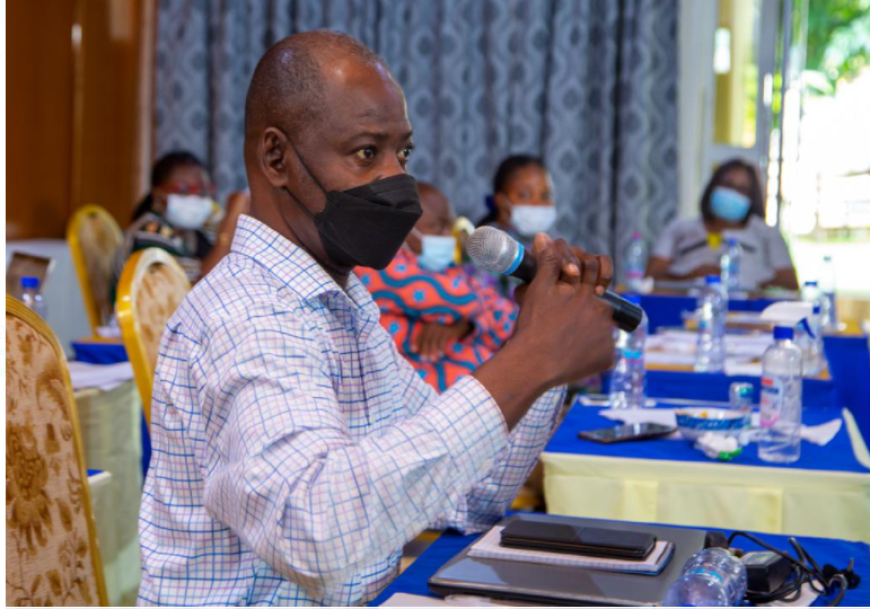Manteaw: Taxes on petroleum usually affect lowly paid formal sector workers, mostly not entitled to fuel allowances
Policy analyst Dr. Steve Manteaw warns that taxes on petroleum disproportionately affect low-income formal sector workers who don’t benefit from fuel allowances. Renowned policy analyst and energy expert, Dr. Steve Manteaw, has raised serious concerns about Ghana’s taxation policy on petroleum products, warning that such measures disproportionately impact the country's most economically vulnerable groups—especially poorly paid formal sector workers. Speaking in response to the government's newly introduced GH¢1 fuel levy, Dr. Manteaw argued that while many middle- and upper-income earners benefit from fuel allowances and other buffers, lowly paid formal workers—like teachers, nurses, and clerks—bear the full brunt of petroleum taxes. “These workers already live from paycheck to paycheck,” Manteaw stated. “They don't get fuel coupons, they don’t enjoy government perks, yet they are taxed as if they do.” ⛽ Taxes That Disregard Economic Realities Manteaw emphasized that taxes on fuel translate directly into higher transportation and goods costs, further eroding the purchasing power of workers whose salaries have not kept pace with inflation. He noted that indirect taxes like petroleum levies are inherently regressive, affecting lower-income earners more than the affluent. “It’s time policymakers consider the socioeconomic layering of Ghanaian society when crafting tax policies,” he added. ???? The Bigger Debate on Tax Fairness His comments join a growing chorus of civil society voices, economists, and political leaders who argue that Ghana’s tax architecture unfairly targets the working poor while shielding elites. The GH¢1 fuel levy, branded by critics as “E-Levy Pro Max,” has reignited national conversations on the fairness and equity of Ghana's fiscal policy. ????️ Top Knowledge TV Commentary: “When workers without fuel allowances are taxed as if they’re CEOs, the system is broken. Dr. Manteaw’s warning should be a wake-up call for reforming how we tax and whom we tax.”Renowned policy analyst and energy expert, Dr. Steve Manteaw, has raised serious concerns about Ghana’s taxation policy on petroleum products, warning that such measures disproportionately impact the country's most economically vulnerable groups—especially poorly paid formal sector workers. Speaking in response to the government's newly introduced GH¢1 fuel levy, Dr. Manteaw argued that while many middle- and upper-income earners benefit from fuel allowances and other buffers, lowly paid formal workers—like teachers, nurses, and clerks—bear the full brunt of petroleum taxes. “These workers already live from paycheck to paycheck,” Manteaw stated. “They don't get fuel coupons, they don’t enjoy government perks, yet they are taxed as if they do.” ⛽ Taxes That Disregard Economic Realities Manteaw emphasized that taxes on fuel translate directly into higher transportation and goods costs, further eroding the purchasing power of workers whose salaries have not kept pace with inflation. He noted that indirect taxes like petroleum levies are inherently regressive, affecting lower-income earners more than the affluent. “It’s time policymakers consider the socioeconomic layering of Ghanaian society when crafting tax policies,” he added. ???? The Bigger Debate on Tax Fairness His comments join a growing chorus of civil society voices, economists, and political leaders who argue that Ghana’s tax architecture unfairly targets the working poor while shielding elites. The GH¢1 fuel levy, branded by critics as “E-Levy Pro Max,” has reignited national conversations on the fairness and equity of Ghana's fiscal policy. ????️ Top Knowledge TV Commentary: “When workers without fuel allowances are taxed as if they’re CEOs, the system is broken. Dr. Manteaw’s warning should be a wake-up call for reforming how we tax and whom we tax.”

Renowned policy analyst and energy expert, Dr. Steve Manteaw, has raised serious concerns about Ghana’s taxation policy on petroleum products, warning that such measures disproportionately impact the country's most economically vulnerable groups—especially poorly paid formal sector workers.
Speaking in response to the government's newly introduced GH¢1 fuel levy, Dr. Manteaw argued that while many middle- and upper-income earners benefit from fuel allowances and other buffers, lowly paid formal workers—like teachers, nurses, and clerks—bear the full brunt of petroleum taxes.
“These workers already live from paycheck to paycheck,” Manteaw stated.
“They don't get fuel coupons, they don’t enjoy government perks, yet they are taxed as if they do.”
⛽ Taxes That Disregard Economic Realities
Manteaw emphasized that taxes on fuel translate directly into higher transportation and goods costs, further eroding the purchasing power of workers whose salaries have not kept pace with inflation.
He noted that indirect taxes like petroleum levies are inherently regressive, affecting lower-income earners more than the affluent.
“It’s time policymakers consider the socioeconomic layering of Ghanaian society when crafting tax policies,” he added.
???? The Bigger Debate on Tax Fairness
His comments join a growing chorus of civil society voices, economists, and political leaders who argue that Ghana’s tax architecture unfairly targets the working poor while shielding elites.
The GH¢1 fuel levy, branded by critics as “E-Levy Pro Max,” has reignited national conversations on the fairness and equity of Ghana's fiscal policy.
????️ Top Knowledge TV Commentary:
“When workers without fuel allowances are taxed as if they’re CEOs, the system is broken. Dr. Manteaw’s warning should be a wake-up call for reforming how we tax and whom we tax.”
What's Your Reaction?



















































































